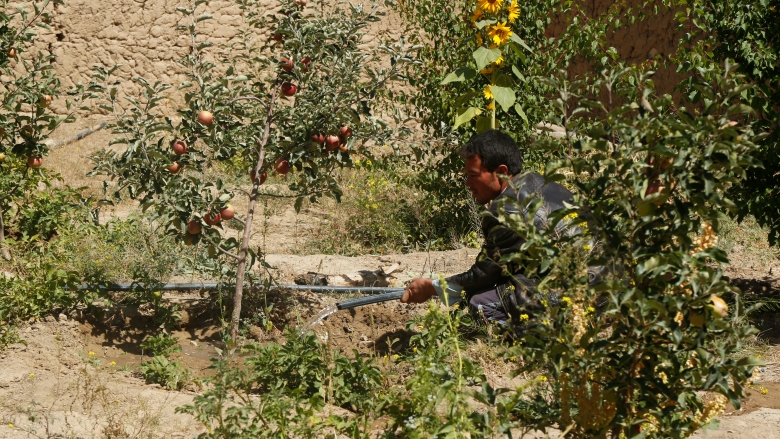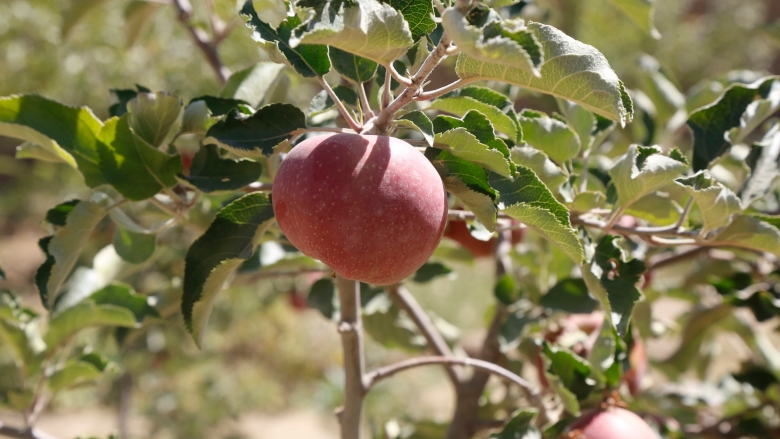BAMYAN CITY, Bamyan Province – The midday sun is shining bright over Dasht-e-Brosna village, highlighting its beautiful landscape. Zamin irrigates his brother’s orchard under the strong sunshine, he moves from one sapling to another with a hose in his hand.
The orchard, on the outskirts of Bamyan city, is full of apple, peach, plum, and apricot saplings. There are, however, no water sources such as a spring or a canal near the orchard, except for a well from which Zamin draws water three times a week to irrigate the trees.
Until recently, Zamin used a small generator to draw water from the well to irrigate the orchard. He now draws water from the well with the help of a solar water pump - the only source of energy needed is sunshine. Prior to receiving the solar water pump, the operation was frequently accompanied by problems including the generator’s technical defects and failures. “Having a reliable source of irrigation has helped us significantly increase our harvest and improve our livelihood,” he says.
The generator also created a considerable financial burden as Zamin had to fill it with 10 liters of diesel every week to keep it running. The costs associated with both fueling and repairing the generator were a significant obstacle to his vision to have a sustainable source of income from horticulture.
Zamin and his brother, Jawad, have been growing fruits for the past four years. Zamin’s vision to earn a living from horticulture came a step closer to fruition when they were able to replace the generator with the solar water pump with the assistance of the National Horticulture and Livestock Project (NHLP). The brothers also received fruit saplings from NHLP that helped enhance their productivity.
NHLP, implemented by the Ministry of Agriculture, Irrigation and Livestock (MAIL), has established or supported orchards and vineyards across the country, using modern horticultural methods. With a $100 million grant support from the Afghanistan Reconstruction Trust Fund (ARTF), NHLP is working towards the overarching goal of increased productivity and overall production of horticultural products, and improved animal production and health. NHLP activities are currently implemented in 120 districts in 23 target provinces, numbers that may grow as conditions warrant.


